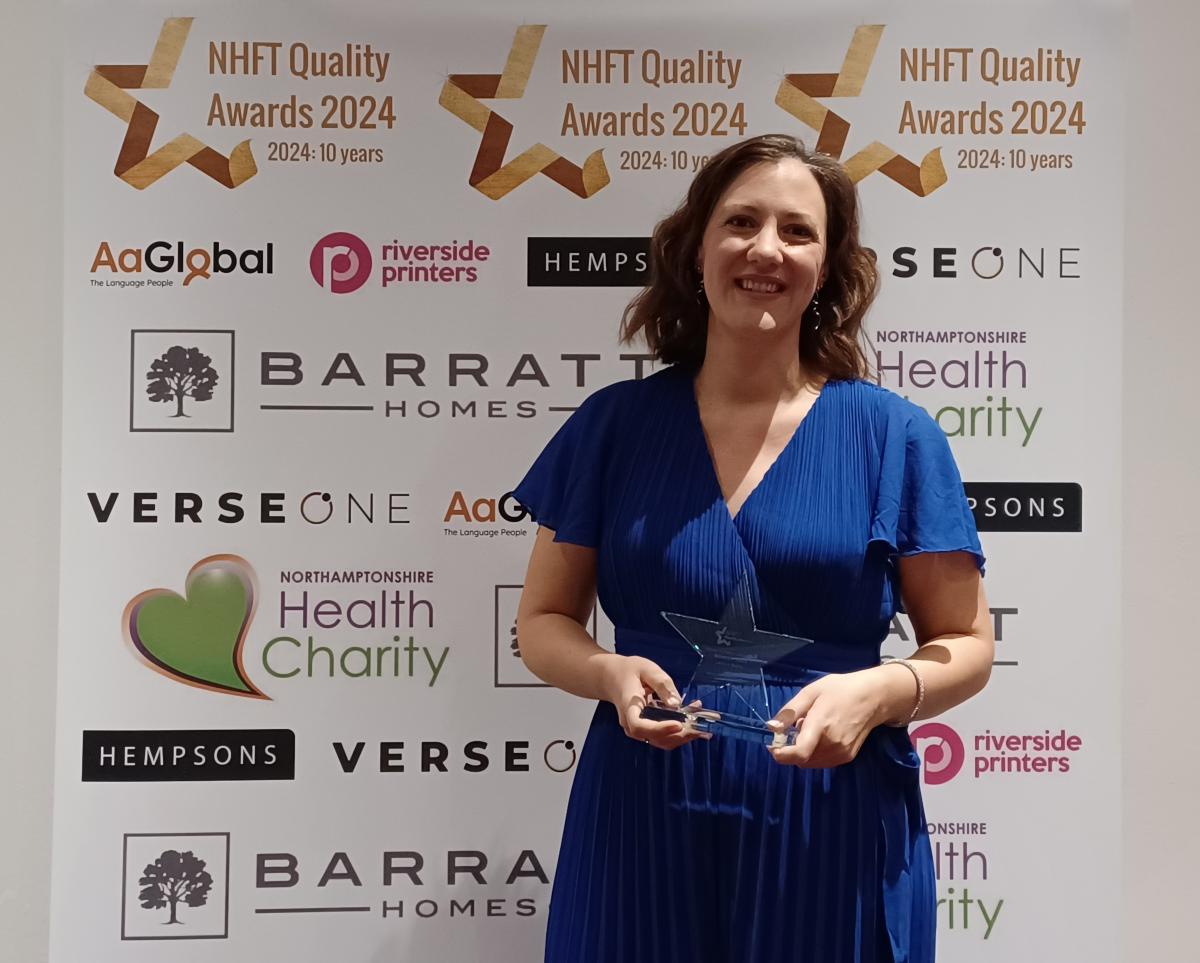Lauren Noble - Inclusivity Ambassador Award

We're continuing our spotlight on our amazing Quality Award winners who picked up awards at the event in November.
Over the coming weeks, we're asking them to tell us more about their role and find out why they were nominated.
Lauren Noble, Advanced Physio Team Lead for the MSK Physiotherapy team covering the south of the county, won the Inclusivity Ambassador Award at the Quality Awards.
Next year, Lauren would have been working for NHFT for 20 years, having joined in 2005, and was nominated for the award for challenging stereotypes and stigma around neurodiversity and encouraging people to embrace their qualities and differences.
Musculoskeletal (MSK) conditions affect many people and can affect joints, bones, muscles and the nervous system which can all impact quality of life.
Lauren heads up a team which sees patients with physical challenges that are affecting their daily lives, many of whom are in persistent pain. These patients often have other health challenges that have exacerbated their physical issues, such as diabetes or cardiovascular conditions. They may also be neurodiverse and perhaps respond to pain differently to others. They may not be able to cope in the same way, or be as resilient in this situation. All these factors need to be considered, and Lauren has shown that she is not afraid to use her own personal experiences of neurodiversity to help others.
On the night of the Quality Awards, Lauren's nomination video saw her speak powerfully and movingly about accepting and embracing neurodiversity and seeing it through a positive lens. She mentioned her own challenges of being autistic and spoke affectingly about her two daughters embracing and being proud of their own neurodiversity. Her deeply personal words clearly resonated with colleagues who attended the event.
Lauren's team at NHFT is part of the wider countywide MSK service, treats patients in various clinics across the south of county, as well as at A&E at Northampton General Hospital. They take referrals from GPs, secondary care, or other NHFT teams.
"I want patients to be the best version of themselves right now" says Lauren, "I can't just 'fix' people, so my aim is to be pragmatic and realistic about what they can achieve and help them to make sense of their condition. We can then look at how to improve it."
Context is key for Lauren; she says it's important for society to move away from blaming the individual for their situation, and look at the reasons why they have arrived here, whether that's things like diet, lifestyle, muscle waste, or underlying conditions, etc.
"Exercise is important for the patients," says Lauren, "but it doesn't need to look like it does for other people, for example running or going to the gym. It can instead be those fun things that we often forget about, like walking, using exercise balls, sensory play, or dancing. The question for the patient is: 'what do you want to be able to do?'"
Lauren has said that throughout her life, as a neurodiverse person, she has always felt like she's had to work 50 times harder than anyone else, but is passionate that people shouldn't see autism always as a learning difficulty, but something whereby people process the world differently and can make a hugely positive contribution to society and the workplace. She highlighted the importance of environment and movement to neurodiverse people when working, saying they can achieve the same as anyone else, they may just get there in a different way, and it's "okay to not find the same things easy."
She said: "It's really important to have supportive leadership above you as well; this has allowed me the space to be myself and try to make a positive difference in my own way. My line manager and service lead have always been open to listening when I am struggling, and never dismiss my experience."
Lauren's experiences of neurodiversity give her an insight into what it's like for her patients, and bringing this to her role can help patients make sense of their own situations - something which has now been recognised at the Quality Awards.
Lauren added: "I know what it's like to be misunderstood; I know what it's like to not be heard, and not be listened to. I want my patients to have a strong sense of self, and feel like they're enough she says, I've spent much of my life feeling like I don't quite 'fit' so I think this helps me to recognise this in others and help them. I guess I love the underdog!"
Find out more about MSK Physiotherapy at www.nhft.nhs.uk/physiotherapy

